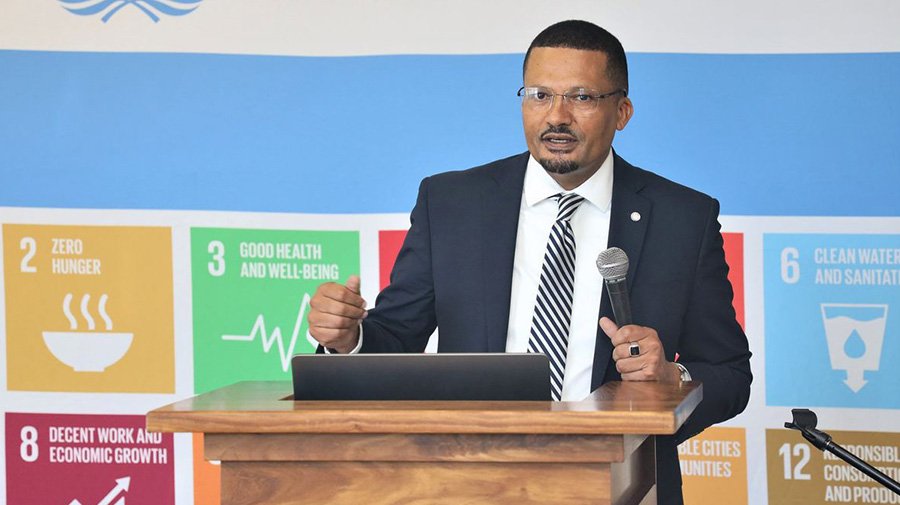
On July 16th, 2024, the Institute of Social Sciences hosted a conference at the India International Centre (IIC), focussing on “Promoting BRICS’ Multidimensional Agenda.” The event featured an address by Mr. Cedrick C. Crowley, Acting High Commissioner of South Africa to India. His speech offered insights into the role of BRICS in shaping a more equitable global order and emphasised the importance of cooperation, dialogue, and multilateralism in addressing contemporary challenges.
Mr. Crowley began his address by highlighting the crucial aspects of South Africa’s foreign policy, emphasising cooperation as a core element since the country’s struggle for liberation. He articulated that South Africa’s participation in BRICS is not about opposition or replacement but about fostering meaningful cooperation among emerging economies and developing countries.
Addressing the current global landscape, Mr. Crowley criticised the international order established in the aftermath of World War II, which he argued continues to favour the global North’s political and economic interests. The structures set up in 1945 and 1946, shaped by dominant military powers, still exert significant influence today. Mr. Crowley asserted that BRICS has the potential to play a pivotal role in restructuring these outdated systems to be more equitable and representative.
A central theme of Mr. Crowley’s speech was the importance of multilateralism. He acknowledged the significant pushback BRICS faces in its quest for reform. This pushback is evident in conflicts such as the Russia-Ukraine situation and issues in the Middle East, where powerful nations often neglect their responsibilities.
Mr. Crowley underscored that BRICS was not established to oppose or replace existing systems but to foster dialogue and cooperation among emerging markets and developing countries. He stressed that BRICS aims for a harmonious world characterised by lasting peace and prosperity. Despite some fears of losing privileged positions, Mr. Crowley emphasised that the current system disproportionately benefits the global North and excludes the South. Thus, reform is essential.
Rooted in the principles of the 1955 Bandung Conference, BRICS embodies solidarity, inclusivity, peace, and development. It builds upon the Non-Aligned Movement’s vision, promoting an open and inclusive approach. Mr. Crowley noted that BRICS has shown significant openness to expansion, welcoming new members and fostering cooperation.
He also highlighted the urgent need for reform in international institutions, including the Security Council and financial institutions. Effective diplomacy and global governance require these reforms to be articulated clearly, ensuring that benefits are more widely distributed. BRICS, with its inclusive approach, demonstrates a commitment to this cause.
He called for collective action from countries of the South to advance development, peace, and security. He emphasised the need for a global order based on multipolarity, a rule-based international order, and a strengthened multilateral system with the UN at its core. As the UN Secretary-General has stated, a multipolar world without strong global institutions could lead to chaos.
He concluded his remarks by expressing optimism for the future. He hopes that the conference and the upcoming Summit of the Future will provide solutions and hope, defending the principles of multilateralism and reinforcing the role of the UN.
Leave a Reply